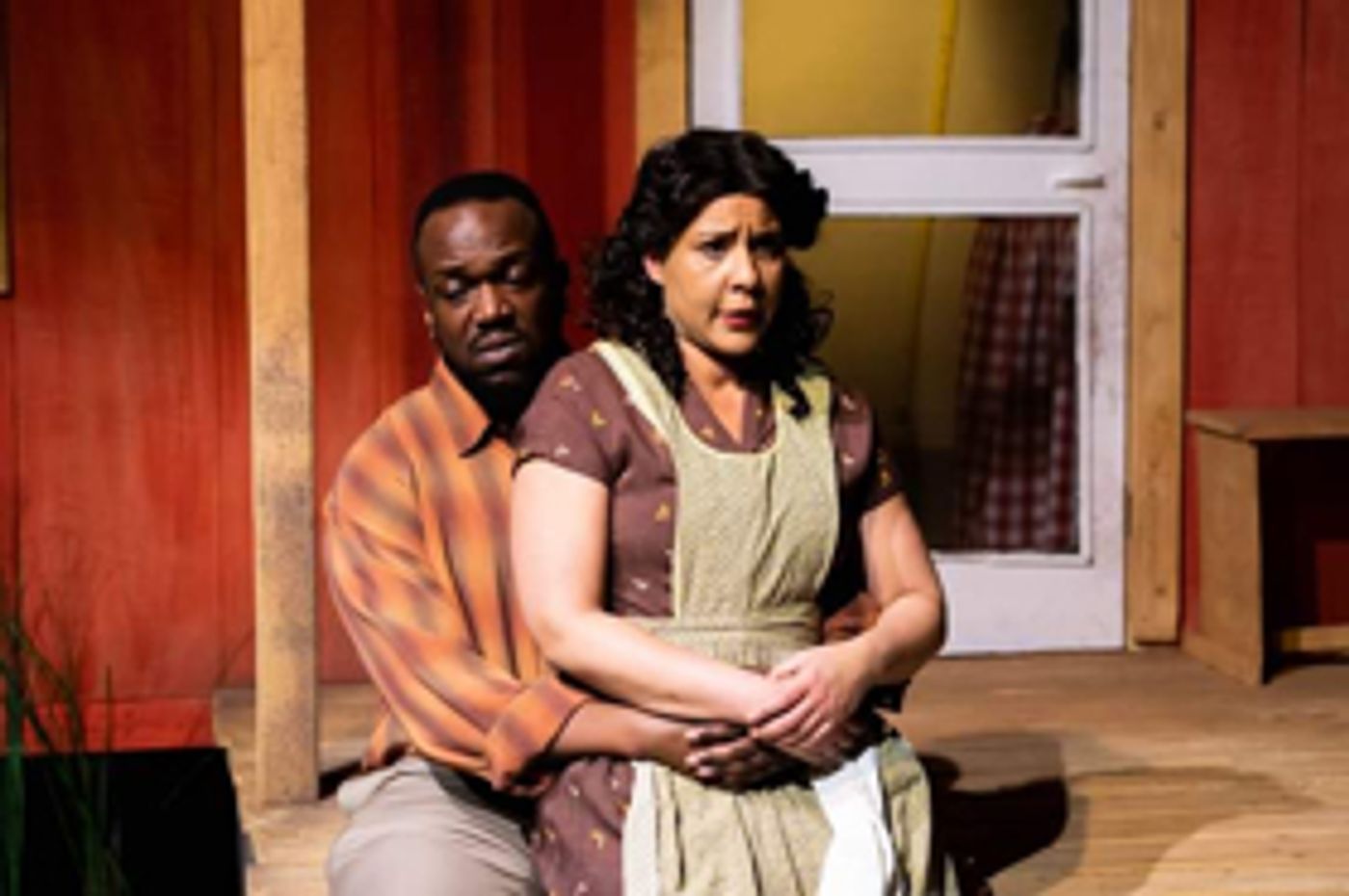Review: PassinArt's THE NO PLAY Hits a Nerve

Something extraordinary happened at PassinArt's production of THE NO PLAY last Sunday -- almost the entire audience stayed for the talkback. I've never seen this happen before. Typically, I'd say about a quarter of the audience hangs around. That fact that nearly every seat in the Interstate Firehouse Cultural Center's 99-seat theatre was still full close to an hour after the play ended indicates that the production clearly hit a nerve.
THE NO PLAY, officially titled No Niggers, No Jews, No Dogs, is a 2000 play by John Henry Redwood, an actor and playwright known for work reflecting "different racial and ethnic experiences in America." Set in North Carolina in 1949, THE NO PLAY explores the similarities and differences between the racism and discrimination faced by the African American and Jewish communities in the first half of the 20th century.
The play tells the story of the relationship between the Cheeks, an African American family, and Yaveni Aaronsohn, a Jewish scholar writing a book about the commonalities in the two cultures' experiences. The official title refers to a sign Yaveni remembers seeing along a highway the first time he traveled to the South.
The Cheeks are a typical family in their town. Rawl, the father, picks up whatever work he can. As the play opens, he's preparing to leave for a several-month job digging up graves in Alabama. Mattie, the mother is a strong woman of faith and a fierce protector of her family. Joyce and Matoka, the children, are just starting to discover exactly how unfair the world is. And then there's Aunt Cora, a mysterious veiled woman who doesn't speak, but hums an eerie tune and knows more than anyone else about what's going on. When Rawl is out of town, an act of violence rattles the family and Mattie is forced to make some very hard choices to protect her loved ones.
The production benefits from a great cast, most especially Andrea White as Mattie, who carries not just the weight of the play, but also bears the brunt of racial injustice while still making sure everyone is fed properly and ready for church on time, and also James Dixon as Rawl, who is a loving husband and father, but moves through life with a rage simmering just below the surface.
The nerve THE NO PLAY hit is the fact that 70 years after the time depicted in the play, many of the themes are still relevant, primarily the rise of white supremacy that has brought with it increased racism against both the Jewish and African American communities. The talkback discussion, which featured a panel of religious and community leaders, touched on several other issues, including the ability (or inability) to hide one's identity, the problem of black men being absent from their families, and the racially motivated fatal attack on the Portland MAX in 2017.
THE NO PLAY is challenging, emotional, and, frankly, pretty upsetting. But, it's well-acted, engaging, and -- most of all -- important. I recommend it very highly.
THE NO PLAY runs through April 14. More details and tickets here.
Reader Reviews

Videos

